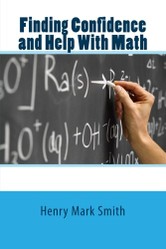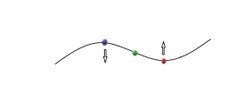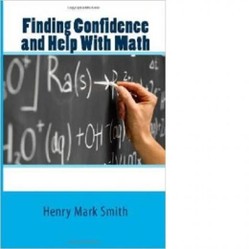When will I use this? This is a legitimate question. In today’s world we have calculators to do computations. And calculators do not make careless errors. So, even teachers can fall into the trap of thinking there is no reason to learn math.
I teach college students, and when the math gets to such things as algebra and trigonometry the question is often asked. The answer is simple, but getting the students to believe the answer is not so simple. Math develops a thought skill that permeates most fields of study.
Let us look at an example. Math develops a logical approach to solving problems. So, a historian studying a time period for a certain country comes up with an edict issued by a king. Rote learning would stop with the fact the edict was issued, but at the higher level required of historian there must be an understanding. Examining a chain of events, and what that king expected to achieve are a greater focus than the document itself. This level of understanding requires logic. This same skill can be developed in solving an algebra problem, but the connection is not apparent on the surface. So, that math course can be useful years later by an historian.
A calculator cannot develop a thought process. But, I have had a student tell me that she always was told to “pull out the calculator” when it was time for math throughout elementary and secondary school. The attitude of her past teachers is unsettling, and a disservice to the students.
Knowing there is a use, even a less than obvious use, makes the desire to know math greater.















 The Linear Equation and Related Equations and Inequalitieson 08/15/2024
The Linear Equation and Related Equations and Inequalitieson 08/15/2024
 Understanding Calculus: A Simplified Approach to Derivativeson 08/05/2024
Understanding Calculus: A Simplified Approach to Derivativeson 08/05/2024
 Limits: Vital Building Blocks of Calculuson 08/01/2024
Limits: Vital Building Blocks of Calculuson 08/01/2024
 Mardi Gras Collectibleson 02/02/2023
Mardi Gras Collectibleson 02/02/2023



Comments
when someone tells me they are good with numbers, so they want to go into math, my advice is go into something that uses math. Higher math is about proving the theorems. The geometry is a good indicator if one will become a mathematician. It is different.
When I was in high school, I loved algebra, but couldn't get the hang of geometry. That was the only class I ever received a C in. I received A's and B's for all my other classes.
One math professor at a school I previously taught for would respond to questions on whether he gave partial credit with "If you were about to be operated on, would you be fine with a doctor who never got anything entirely right, but graduated by partial credit?"
blackspanielgallery, Thank you for the backstories, practicalities and products. The copy machine acted up the other day and gave out no change to one patron or the combined change of the unrecompensed patron with the next copy user's change. A millennial checked what his change would be from a patron whose change included his and that of the two previous copy machine users. It involved less than a dollar! I knew what the amounts were but didn't say anything because the calculator got it right and it only would make the three young'uns feel "less than" and it wasn't a classroom.
Dustytoes, you are right about the new approach. I have seen some, albeit just a little, of Common Core math. Students now guess at answers and get a feel for things. It seems finding exact solutions is becoming less important.
I find guessing, unless you are like Star Trek's Mr. Spock, very scary.
Frank, a helpful technique is always good, but pushing but pushing buttons does not engage cognitive skills, and that is what is currently going on in some schools. I see the products of those schools.
When I was in early grades we were not allowed to use our fingers.
I have always enjoyed math, but had some trouble with equations at first. I never progressed past advanced algebra but took some in college - and NEVER used a calculator except for square roots and big numbers to save time when figuring a problem. I always wrote the problem out - we had to. Every child should learn to do math without a calculator. It should be used sparingly once they understand math. However, I believe kids are now taught some "new math" and I can only wonder how screwy that must be!
My daughter used to cry in school whenever it was time for math, she hated it so much!
I used the following technique to show how tables could be used to aid multiplication and division.
For example, take 5x2=10. Draw a triangle and write 10 in the top, with 5 and 2 in the bottom corners. On the inside place a X between 5 and 2 and then place = signs in the other sides, still inside the triangle. Moving round the table you get 5x2 =10 or 2x5 =10. On the outside place division signs and put an =sign between 2 and 5. The child can easily learn to multiply and divide using the time tables. I used this technique successfully when tutoring younger children.
I once tutored a girl in the tenth grade who could not divide by 10, nor by 2. Her physics grades were low, so she contacted a tutoring service. I watched her do 90/(2X5) and she did it 90/2/5, which was wrong. I showed her how to use parentheses, and her grades went up about 40 points on the next test and passed the course. She told me there were eleven other girls from her elementary school who also were struggling in math in an expensive Catholic high school. Obviously her elementary teachers not only overused the calculator, but used it improperly. In the United States our educational programs are lagging behind, partially because of such things.
Calculator dependence! Once I was told to cover a maths class for an absent teacher.All the cupboards were locked, so no calculators were available. An eleven year old girl told me that she could not solve a problem without a calculator. The problem: 48 divided by 4. I told her to solve it, but she said that she was unable. I had to talk her through the problem.But I concluded by saying that she had to learn to be independent of the calculator.